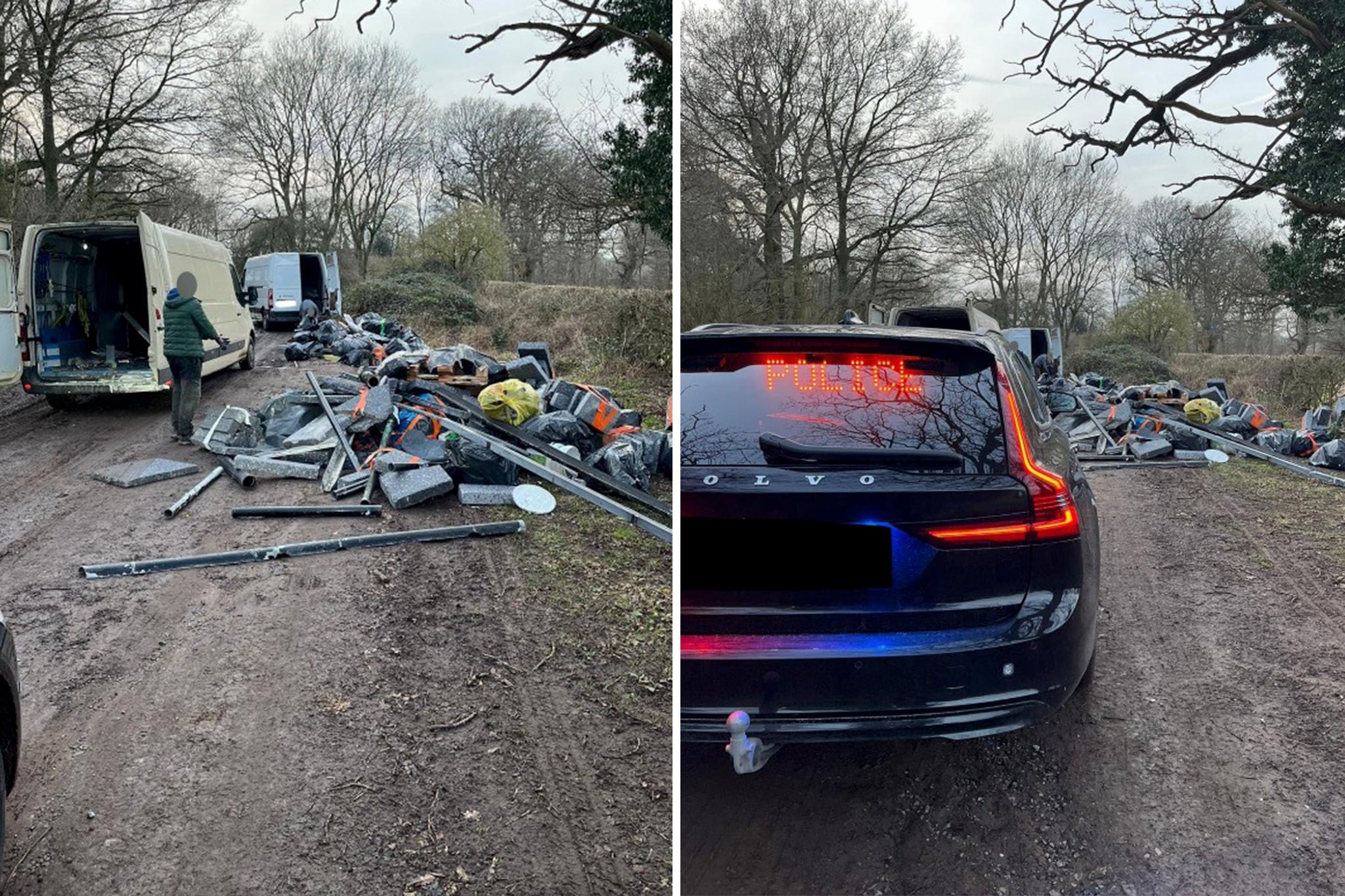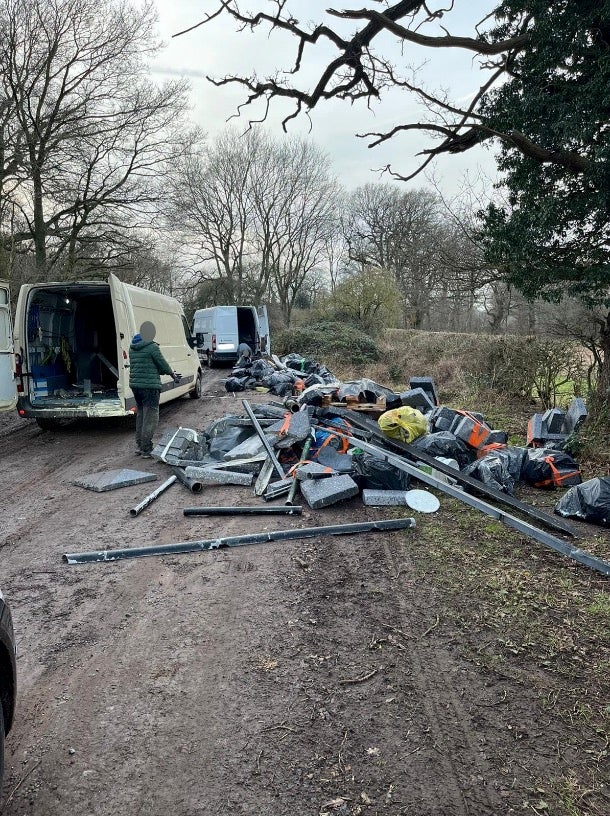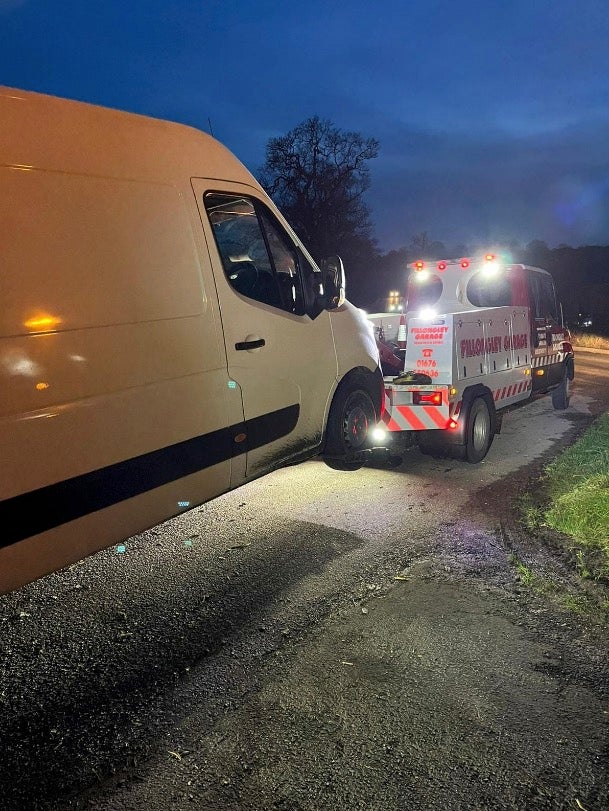Hero farmers block in bungling fly-tippers who are forced to clear up dumped waste
Farmers acted quickly to stop the two men spotted unloading building waste from their vans near Coleshill in Warwickshire

Hero farmers blockaded two fly-tippers they busted dumping building waste on a country track - before arriving police officers forced them to load the rubbish back into their vans.
The drama unfolded in Maxstone Lane near Coleshill in Warwickshire when Ionut Bancunlea and Adrian Bivolaru were caught throwing away material from their vehicles by the eagle-eyed landowners.
The farmers acted quickly to block the two men in and called police who ordered the men to reload the waste into their vans, before seizing their vehicles.
Pictures taken from the fly-tipping incident show swathes of black bin bags and industrial materials lying at the side of the road.
“We are very happy that the operations patrol unit were quick to assist landowners and able to catch them in the act on this occasion.” said Sergeant Matt Simms.
“We share in the satisfaction that Banunclea and Bivolaru were made to clean up at least one of their messes.”

Following the incident on 7 February, Bancunlea, 33, and Bivolaru, 34, both from Smethwick in the West Midlands, appeared before magistrates and both pleaded guilty to charges of dumping waste without a permit.
They were spared jail, but ordered to pay compensation and carry out unpaid work.
Latest Defra figures for fly-tipping show there were 1.1m incidents in 2022/23, with 60 per cent involving household waste.
The Country Land and Business Association estimates farmers spend an average £1,000 on each occasion they remove dumped waste from their land.

New rules came in on 1 April that means fines collected from fly-tipping are now ring-fenced for clean-up activities and enforcement, a move welcomed by the National Farmers’ Union.
Sgt Simm said: “Dropping waste at the side of the road ruins our beautiful countryside and wastes precious resources from our local councils that could be better invested elsewhere to clean it up.
“It also stops businesses like farms from being able to operate while the owners deal with the mess, often leaving them out of pocket as well.”
Bancunlea, who pleaded guilty to four charges of depositing waste without a permit, was ordered to pay £1,566 in compensation and carry out 150 hours of unpaid work.
Bivolaru, who admitted two charges of the same offence, was told to pay £200 in compensation and carry out 80 hours of unpaid work.
